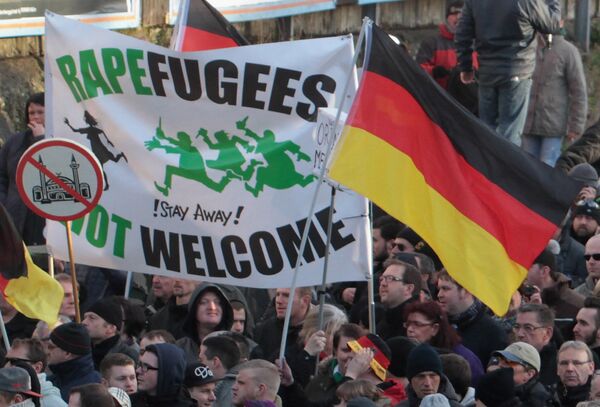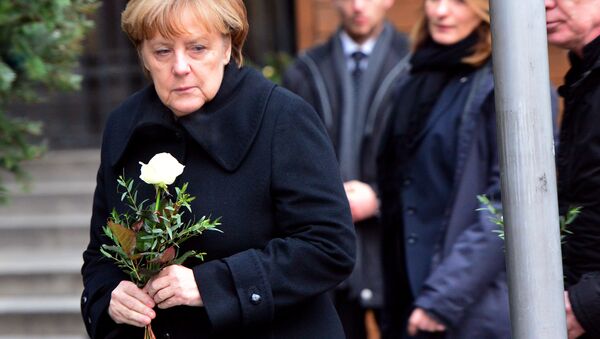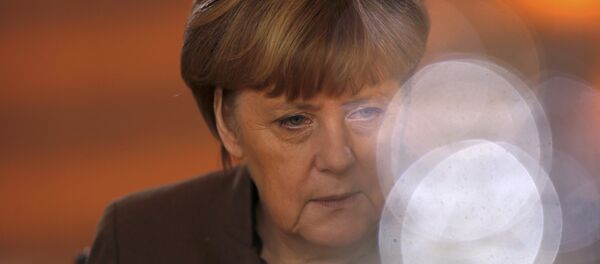At time of writing, authorities in Germany are still to apprehend the person or persons responsible for an attack involving an articulated truck being driven at speed through a Christmas market, plowing into men, women and children, in a chilling reminder of the attack which took place in Nice in the south of France back in July, on the evening of the country's annual Bastille Day celebrations. 84 people were killed on that occasion, while the perpetrator was shot dead by French police at the scene.
In Berlin 12 people were killed, including the original driver of the truck that was used, while a further 49 have been injured, some critically.
As with the terrorist atrocity in Nice, credit for its Berlin counterpart has been claimed by Daesh. However, this may be a case of opportunism on the part of the Salafi-jihadist terrorist organization. Even so, it does not take a genius to discern an Islamist motive behind Berlin despite the fact that those responsible have yet to be apprehended.
Soon after the attack, German police arrested a 24-year old Pakistani asylum seeker, only to later release him, citing lack of evidence; this after the media had widely reported that he was the individual responsible.
Did berlin police just release the guy they arrested? That would mean with certainty that the actual terrorist is still out there.
— Kraut and Tea (@Kraut_and_Tea) December 20, 2016
The resulting confusion has only added to the anger being leveled at both the authorities and the government. It replicates the anger that was unleashed in the country in the wake of the myriad sexual assaults that took place in Cologne last winter, with allegations that refugees and migrants were responsible for attacking dozens of women during the city's public New Year festivities. The lack of a vigorous response by the police on that occasion helped fuel anti-immigrant sentiment that was already rising.

Cologne and now Berlin are being linked to Merkel's decision to allow more than a million refugees into Germany during the vast exodus from countries such as Syria, Libya, Afghanistan, and Somalia in the summer of 2015.
The majority of them had arrived after a perilous journey across the Mediterranean, setting sail in all manner of vessels, most of which were unsafe. The result was thousands being drowned in the attempt, among them women and children. It is a tragic outcome that continues to to this day.

At the time, Angela Merkel's decision to extend a welcoming hand to so many refugees was widely applauded within Germany and beyond, welcomed by many as a rejoinder to the alarming growth of nationalist and right-wing populist sentiment across Europe. Indeed it was viewed by many as a rare example of compassion in a world leader towards people who'd seen their lives turned upside down as a result of conflict, immiseration and ensuing societal collapse.
Thousands of German citizens turned out at train stations and bus stations to welcome the incoming refugees with parcels of food and clothing.
Donations to funds set up to help them flooded in as part of a national eruption of compassion and kindness that had suddenly taken root.
Merkel herself said,"We can do it!" when it came to opening Germany's borders to so many people in such a short space of time last year. She later went on to opine:
"If we now start to apologize for showing a friendly face in emergency situations, then this is no longer my country."
Those words have now come back to haunt a leader whose popularity was once so high no rival candidate could have hoped to mount a serious bid to unseat her. This is no longer the case.
Her party, the Christian Democratic Union (CDU), suffered a significant setback in German regional elections in Merkel's home state of Mecklenburg-Vorpommern, coming in third behind the Social Democratic Party (SPD), and the right wing populist party Alternative fur Deutschland (AfD), running on an anti-immigration platform.
For all her uncommon and prolonged popularity, in Germany, it is clear that history will be pretty harsh on Angela Merkel
— sean thomas knox (@thomasknox) December 19, 2016
Merkel has seen her own popularity plunge to a five year low, this according to a nationwide opinion poll taken at the beginning of September. It is hard to imagine that her polling figures will plunge even lower in the wake of the terrorist attack in Berlin. With a German general election scheduled to take place in 2017, and with Merkel hoping to be elected for a fourth term as chancellor, suddenly her position appears more vulnerable than her supporters could ever have imagined.
Merkel: "We do not wish to let fear & angst take away our freedom to live.” It's not "fear & angst" taking it away, it's YOU, Angela.
— Ann Coulter (@AnnCoulter) December 20, 2016
Truly we are living through chaotic times, wherein terrorism and the fear of terrorism is the new normal. Compassion towards those whose plight refutes our right to consider ourselves civilized is understandably tempered by the threat of this terrorist menace. Refugees and asylum seekers have moral and human rights to sanctuary. They are first and foremost human beings whose plight is a consequence of the moral sickness that is the Western doctrine of regime change. No regime change no, or far less, refugees. It's very simple.
What is not simple is balancing the rights of desperate human beings fleeing the chaos created by war and conflict with the rights of people across Europe to be safe from the threat of indiscriminate slaughter. It is not irrational either, this fear. But it is one being cynically exploited by the far right, which has seen its fortunes across the West improve to an extent not witnessed since the 1930s, under similar conditions of economic and political uncertainty.
Angela Merkel's new reality for christian Germans. This is the Christmas markets in Berlin now. pic.twitter.com/KEQAX9SGyf
— TheLastRefuge (@TheLastRefuge2) December 22, 2016
Absorbing one million people in a short space of time, and without serious consultation or consideration of the consequences to social cohesion, was in hindsight a calamitous knee-jerk reaction on the part of the German chancellor.
It is one that may very well prove her political epitaph.
The views expressed in this article are solely those of the author and do not necessarily reflect the official position of Sputnik.




